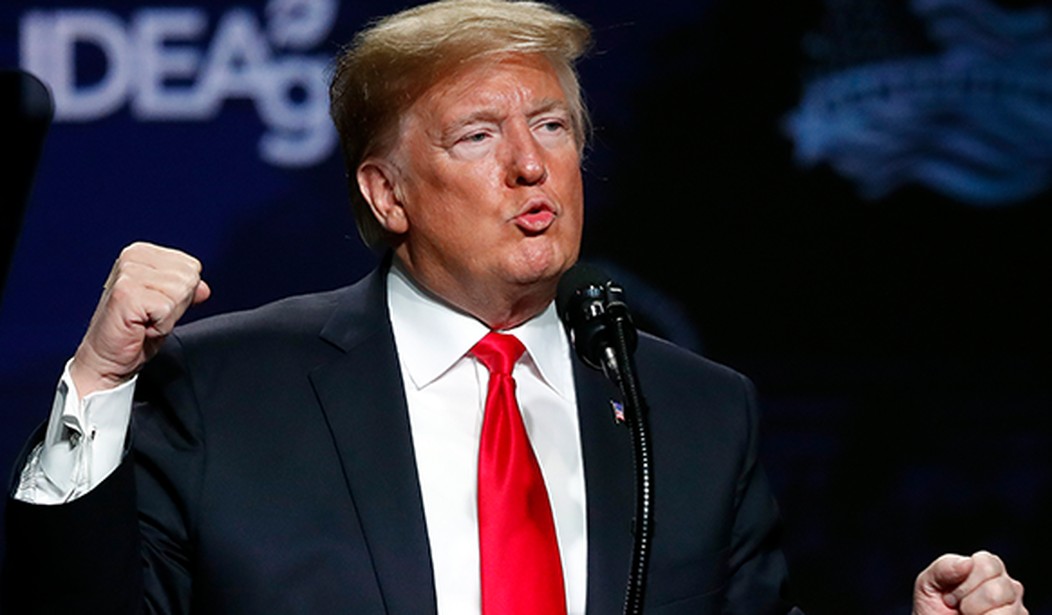WASHINGTON -- President Trump appeared by midweek to be edging closer to accepting a scaled-down payment, at least momentarily, in the bitter war with Congress over his long-promised wall on the U.S.-Mexico border.
Trump had demanded $5.7 billion for a 234-mile steel wall along part of the 1,954-mile border, but a compromise bill offered a fraction of that sum: $1.375 billion for a mere 55 miles of new fencing.
With a Friday deadline looming on his earlier decision to lift the government shutdown, Trump's threat of another shutdown receded by Wednesday as he sent signals that he might be willing to accept a deal. Then again, he might not.
"Am I happy at first glance? The answer is no, I'm not, I'm not happy," he told White House reporters Tuesday, after meeting with his Cabinet. "It's not going to do the trick, but I'm adding things to it, and when you add whatever I have to add, it's all going to happen where we're going to build a beautiful, big, strong wall."
Positive hints came during a telephone call with Senate Appropriations Committee Chairman Richard C. Shelby about more money for border security, apart from the wall.
"I wouldn't want to see a shutdown. If you did have it, it's the Democrats' fault," Trump said Tuesday.
Still, Trump was not tipping his hand, saying he hadn't seen the bill, even as the House was moving closer to a vote before legislation heads to the Senate.
Republican leaders were urging him throughout the week to sign it when it reaches his desk, saying that the GOP couldn't afford to endure another government shutdown.
"I think the president will sign it," said Rep. Mark Meadows, Republican of North Carolina, the leader of the GOP's conservative Freedom Caucus voting bloc. "I think he will do so reluctantly. And then, obviously, have to use executive actions to secure our borders."
Recommended
Senate Majority Leader Mitch McConnell, R-Ky., briefed Trump on the bill earlier this week, and later told reporters he urged the president to sign it. "He's got a pretty good deal here."
Internally, the White House has been mapping out a plan to declare a national emergency at the border under his executive authority to use several billions of dollars more in previously appropriated defense funds.
He laid out the arguments for that gambit in his State of the Union address, and in previous speeches, claiming that hordes of criminals, murderers, drug dealers, rapists, terrorists, among others, are swarming across the border by the thousands, posing a massive threat to America's safety.
But that plan, with little proof to support such action, is fraught with legal controversy that could be bottled up in the federal courts for months, if not longer.
The Democrats have already warned that they would challenge Trump's plan in the courts all the way to the Supreme Court.
They have a powerful argument on their side: The United States Constitution, which unequivocally states that only Congress can appropriate government funds and decides how such funds are to be used.
Presidents do not appropriate. They spend. Congress writes the bills that tell the chief executive how that money should be spent and by how much.
And judging by how much has been added to our national debt in the last two years, Trump has been doing an abysmal job.
The national debt, according to the U.S. Treasury, stood at $19.95 trillion when Trump took office on Jan. 20, 2017.
Two years later, it is $22.01 trillion.
Who is responsible?
"The debt figure has been rising at a faster pace after passage of Trump's $1.5 trillion tax cut in December 2017 and action by Congress last year to increase spending on domestic and military programs," The Washington Post reported Wednesday.
The Congressional Budget Office says this year's budget deficit will come in at around $897 billion.
The late Sen. Everett Dirksen once remarked about Washington's spending appetites, "A billion here, a billion there, and pretty soon you're talking real money."
Donald Lambro has been covering Washington politics for more than 50 years as a reporter, editor and commentator.

























Join the conversation as a VIP Member